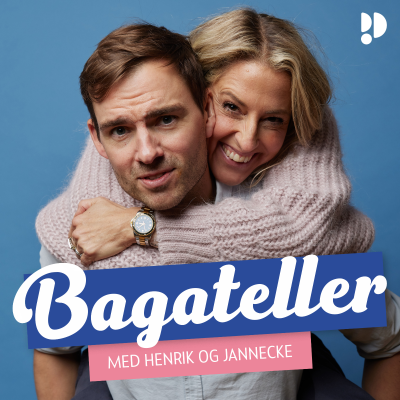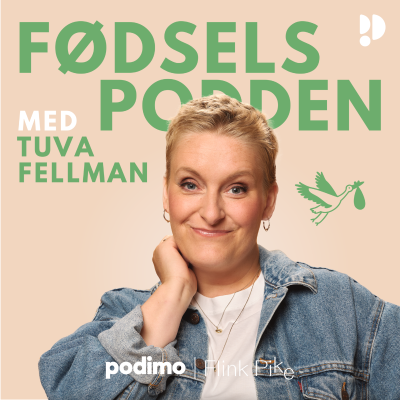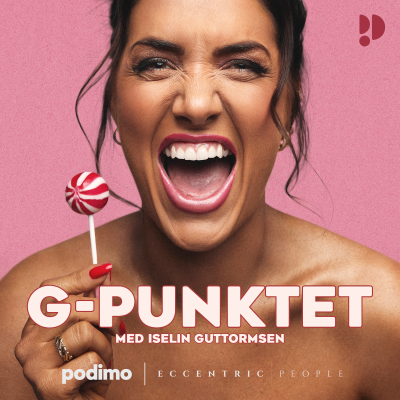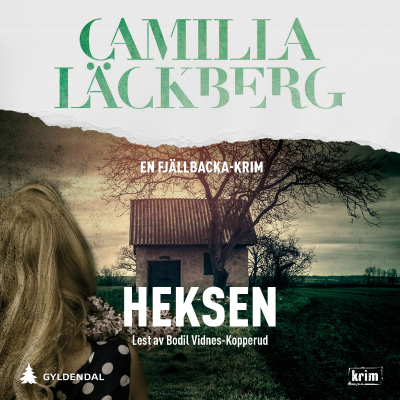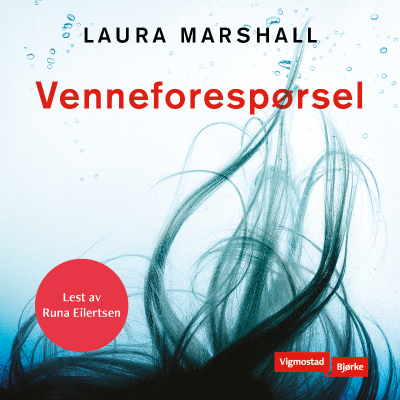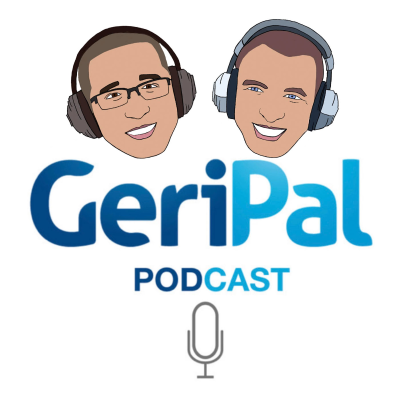
GeriPal - A Geriatrics and Palliative Care Podcast
Podkast av Alex Smith, Eric Widera
A geriatrics and palliative care podcast for every health care professional. We invite the brightest minds in geriatrics, hospice, and palliative care to talk about the topics that you care most about, ranging from recently published research in the field to controversies that keep us up at night. You'll laugh, learn and maybe sing along. Hosted by Eric Widera and Alex Smith. CME available!
Prøv gratis i 7 dager
99,00 kr / Måned etter prøveperioden.Avslutt når som helst.
Alle episoder
361 EpisoderOur main focus today was on nudging critical care clinicians [https://jamanetwork.com/journals/jamainternalmedicine/fullarticle/2831393] to consider a more palliative approach to care. Our guests are all trained in critical care: Kate Courtright, Scott Halpern, and Jaspal Singh. Kate and Scott have additional training in palliative medicine. To start. we review: * What is a nudge? Also called behavioral interventions, heuristics, and cognitive biases. * Prior podcasts on the ethics of nudging [https://geripal.org/is-nudging-patients-ethical-podcast-with-jenny-blumenthal-barby-and-scott-halpern/], and a different trial conducted by Kate and Scott in which the default for hospitalized seriously ill patients was to receive a palliative care consult [https://geripal.org/rct-of-default-inpatient-pc-consults-kate-courtright-scott-halpern/]. * What is sludge? I’d never heard the term, perhaps outside of Eric’s pejorative reference to my coffee after adding copious creamers, flavoring, and sweeteners. Sludge is apparently when you create barriers or extra work for someone. For example, putting the healthy food at the back of the grocery store is sludge; making an applicant for health insurance climb the flight of stairs to the office - weeding out those less fit - is also sludge. Prior-auth forms? Sludge. * Examples of nudges, some based in health care, others in coffee. This specific study [https://jamanetwork.com/journals/jamainternalmedicine/fullarticle/2831393], published in JAMA Internal Medicine, was conducted in 17 ICUs in North Carolina. Many were community hospitals. Participants were critically ill and intubated. Clinicians were randomized to 4 groups: 1. Usual care 2. Prognosis nudge - EHR prompt asking, do you think your patient will be alive in 6 months? This is called a focusing effect 3. Comfort care nudge - EHR prompt asking if they’d offered comfort-focused care. This is called accountable justification - an appeal to standards of care for critically ill patients endorsed by multiple professional societies. 4. Both the prognosis and comfort care nudge. A few key points of discussion: * Is an EHR prompt a nudge or sludge? * The intervention was a negative study for the primary outcome, hospital length of stay. Why? * The prognosis nudge did nothing. What to make of that? Would you think an EHR nudge to consider prognosis might move the needle, at least on some outcomes? * The nudge toward offering comfort care led to more hospice and early comfort-care orders. Is this due to chance alone, given the multiplicity of secondary outcomes examined? Or is it a tantalizing finding that suggests a remarkably low cost EHR based nudge might, on a population level, lead to critical care clinicians offering comfort care and hospice more frequently? Imagine [https://www.youtube.com/watch?v=YkgkThdzX-8]! -Alex Smith [https://bsky.app/profile/alexsmithmd.bsky.social]
We’ve covered psychedelics on the podcast before—first in 2019 with Ira Byock, where we explored their potential role in medicine [https://geripal.org/psychedelics-podcast-with-ira-byock/], and then again in 2023 with Stacy Fischer, Brian Anderson, and Theora Cimino, focusing on the reasons to approach psychedelic use in patients with caution [https://geripal.org/psychedelics-reasons-for-caution-stacy-fischer-brian-anderson-theora-cimino/]. In today’s episode, we’re taking a closer look at the current state of the science around one specific psychedelic: psilocybin. We'll discuss three recent clinical trials involving patients with serious illness, joined by our guests James Downar [https://www.bruyere.org/en/research-james-downar], Ali John Zarrabi [https://med.emory.edu/departments/family-preventive/research/zarrabi-ali.html], and Margaret Ross [https://psychwire.com/profiles/17c3u0j/margaret-ross]. We begin with a refresher on psilocybin—what it is, how it might work, what conditions it may help treat (including demoralization), and how it’s typically administered. What makes this episode especially compelling is our deep dive into the three studies, which highlight two different approaches to using psilocybin: daily microdosing, similar to traditional antidepressants, and a more intensive model known as psilocybin-assisted therapy. This latter approach involves three structured phases—preparation, the dosing session, and post-session integration with trained therapists.
Peter Selwyn, one of today’s guests, has been caring for people living with HIV for over 40 years. In that time, care of people with HIV has changed dramatically. Initially, there was no treatment, then treatments with marginal efficacy, complex schedules, and a tremendous burden of side effects and drug-drug interactions. The average age at death was in the 30s. Now, more people in the US die with HIV rather than from HIV. Treatment regimens are simplified, and the anti-viral drugs are well tolerated. People are living with HIV into advanced ages. The average age at death is likely in the 60s. Nearly half of people living with HIV are over age 55. One in 10 people with newly diagnosed HIV is an older adult. Our second guest, Meredith Greene, is a geriatrician and researcher who focuses on care of older adults living with HIV, in the US and Africa. On today’s podcast we discuss: * Implications of aging with HIV for clinical care * Loneliness and social isolation among older adults living with HIV * Persistence of stigma * Need to consider HIV in the differential diagnosis for older adults * Screening for HIV * Screening for osteoporosis in people living with HIV * Dementia and cognitive impairment risk in people living with HIV * When to stop anti-virals near the end of life Toward the end we speak to the moment. More older adults live with HIV in SubSaharan Africa and the global South than anywhere else in the world. Funding for research and clinical care is at risk, as USAID and PEPFAR (which is under USAID), are shuttered. Millions of lives are at stake. Meredith wore a shirt that said Silence=death [https://www.brooklynmuseum.org/objects/159258]. Eric gave me the hook during my live cover of One, by U2, a song released in 1992 whose proceeds went entirely to AIDS research. I couldn’t help it, forgive me dear listeners, I had to do a longer than usual cut at the start! -Alex Smith Useful links: Peter's article on the evolution of HIV: https://link.springer.com/article/10.1007/s11524-011-9552-y [https://urldefense.com/v3/__https://link.springer.com/article/10.1007/s11524-011-9552-y__;!!LQC6Cpwp!oGTxe40M1dSpsSL_TLN2FqLcSywbCfuZm21-4nUg_SQDg9tJ4GhC1_9WZEFwGOOxTWd_2mIq0HRRr0Y3pN_m9Ak$] Peter’s book Surviving the Fall: Personal Journey of an AIDS Doctor [https://yalebooks.yale.edu/book/9780300082760/surviving-the-fall/] PEPFAR: Global Health Policy | KFF [https://urldefense.com/v3/__https://www.kff.org/global-health-policy/__;!!LQC6Cpwp!oGTxe40M1dSpsSL_TLN2FqLcSywbCfuZm21-4nUg_SQDg9tJ4GhC1_9WZEFwGOOxTWd_2mIq0HRRr0Y3MqtzFFE$] Articles: Geriatric Syndromes in Older HIV-Infected Adults - PMC [https://urldefense.com/v3/__https://pmc.ncbi.nlm.nih.gov/articles/PMC4445476/__;!!LQC6Cpwp!oGTxe40M1dSpsSL_TLN2FqLcSywbCfuZm21-4nUg_SQDg9tJ4GhC1_9WZEFwGOOxTWd_2mIq0HRRr0Y3XeM-APw$] Loneliness in Older Adults Living with HIV [https://urldefense.com/v3/__https://pmc.ncbi.nlm.nih.gov/articles/PMC6756479/pdf/nihms-1050918.pdf__;!!LQC6Cpwp!oGTxe40M1dSpsSL_TLN2FqLcSywbCfuZm21-4nUg_SQDg9tJ4GhC1_9WZEFwGOOxTWd_2mIq0HRRr0Y3TPpExeU$] Management of Human Immunodeficiency Virus Infection in Advanced Age https://pmc.ncbi.nlm.nih.gov/articles/PMC3684249/ [https://urldefense.com/v3/__https://pmc.ncbi.nlm.nih.gov/articles/PMC3684249/__;!!LQC6Cpwp!oGTxe40M1dSpsSL_TLN2FqLcSywbCfuZm21-4nUg_SQDg9tJ4GhC1_9WZEFwGOOxTWd_2mIq0HRRr0Y3-N25NCI$] About Act-up for those who might know the Silence=Death t-shirt reference: https://www.npr.org/2021/06/16/1007361916/act-up-a-history-of-aids-hiv-activism [https://urldefense.com/v3/__https://www.npr.org/2021/06/16/1007361916/act-up-a-history-of-aids-hiv-activism__;!!LQC6Cpwp!oGTxe40M1dSpsSL_TLN2FqLcSywbCfuZm21-4nUg_SQDg9tJ4GhC1_9WZEFwGOOxTWd_2mIq0HRRr0Y3kcbBJfo$] https://www.newyorker.com/magazine/2021/06/14/how-act-up-changed-america [https://urldefense.com/v3/__https://www.newyorker.com/magazine/2021/06/14/how-act-up-changed-america__;!!LQC6Cpwp!oGTxe40M1dSpsSL_TLN2FqLcSywbCfuZm21-4nUg_SQDg9tJ4GhC1_9WZEFwGOOxTWd_2mIq0HRRr0Y3RCH2_EA$]
More and more people are, “doing their own research. [https://www.reddit.com/r/PoliticalHumor/comments/q45j0d/did_your_research_have_a_lot_of_fiber_in_it/#lightbox]” Self-identified experts and influencers on podcasts [https://x.com/cancersociety/status/1877819687821594661] (podcasts!) and social media endorse treatments that are potentially harmful and have little to no evidence of benefit, or have only been studied in animals. An increasing number of federal leaders [https://www.politico.com/news/2021/04/23/trump-bleach-one-year-484399] have a track record [https://www.nytimes.com/2025/03/14/well/dr-oz-health-claims-fact-check.html] of endorsing such products. We and our guests have noticed that in our clinical practices, patients and caregivers seem to be asking for such treatments more frequently. Ivermectin to treat cancer. Stem cell treatments. Chelation therapy. Daneila Lamas wrote about this issue in the New York Times this week [https://www.nytimes.com/2025/04/20/opinion/doctors-vaccines-patients.html] -after we recorded - in her story, a family requested an herbal infusion for their dying mother via feeding tube. Our guests today, Adam Marks, Laura Taylor, & Jill Schneiderhan, have coined a term for such therapies, for Potentially Unsafe Low-evidence Treatments, or PULET. Rhymes with mullet (On the podcast we debate using the French pronunciation, though it sounds the same as the French word for chicken). We discuss an article they wrote about PULET [https://journals.sagepub.com/doi/10.1177/10499091221101181] for the American Journal of Hospice and Palliative Medicine, including: * What makes a PULET a PULET? Key ingredients are both potentially unsafe and low evidence. If it’s low evidence but not unsafe, not generally an issue. Think vitamins. If it’s potentially unsafe, but has robust evidence, well that’s most of the treatments we offer seriously ill patients! Think chemo. * What counts as potentially unsafe? They include what might be obvious, e.g. health risks, and less obvious, e.g. financial toxicity. * What counts as low-evidence? Animal studies? Theoretical only? * Does PULET account for avoiding known effective treatments? * Do elements of care that are often administered to seriously ill patients count? Yes. Think chemotherapy to imminently dying patients, or CPR. * How does integrative medicine fit in with this? Jill Schneiderhan, a family medicine and integrative medicine doc, helps us think through this. * How ought clinicians respond? Hint: If you’re arguing over the scientific merits of a research study, you’re probably not doing it right. Instead, think VitalTalk [https://www.vitaltalk.org/], REMAP, and uncover and align with the emotion behind the request. * Does the approach shift when it’s a caregiver requesting PULET for an older relative who lost capacity? How about parents advocating for a child? For more, Laura suggests a book titled, How to Talk to a Science Denier [https://mitpress.mit.edu/9780262545051/how-to-talk-to-a-science-denier/]. And I am particularly happy that the idea for this podcast arose from my visit to Michigan to give Grand Rounds [https://www.instagram.com/p/DB13zCOhJJG/?utm_source=ig_web_copy_link], and the conversations I had with Adam and Laura during the visit. We love it when listeners engage with us to suggest topics that practicing clinicians find challenging. And I get to sing Bon Jovi’s Bad Medicine, which is such a fun song! -Alex Smith
I read Farah Stockman’s article in the NYT on why attacks on DEI will cost us all [https://www.nytimes.com/2025/01/06/opinion/biden-administration-diversity.html?searchResultPosition=4], and thought, “Yes, and ‘everyone’ includes harm to our healthcare workforce, our patients, and their families.” So we’re delighted that Farah Stockman, pulitzer prize winning journalist, author of American Made: What Happens to People When Work Disappears [https://www.penguinrandomhouse.com/books/591675/american-made-by-farah-stockman/], and editorial board member at the New York TImes joins us to set the bigger picture for this discussion. Farah provides clear examples from the Biden administration, in which having the most diverse cabinet in history was critical to building bridges, empathy, and inspiring others to feel included. We are also pleased to welcome Ali Thomas, a hospitalist, member of the Baha'i Faith, leader of anti-racism efforts in the Pacific Northwest, and founder of the BIPOC Health Careers Ecosystem [https://www.health-ecosystem.org/]. Ali talks about the history of affirmative action, which started as a program for Whites [https://wwnorton.com/books/When-Affirmative-Action-Was-White/], the importance of diversity in the healthcare workforce [https://www.acpjournals.org/doi/10.7326/0003-4819-147-4-200708210-00020], the history of allyship and cross cultural collaboration, and his own efforts to provide opportunity and support for historically oppressed groups in his own community to obtain healthcare careers. And Ken Covinsky, avid baseball fanatic, joins us and notes that the day we record (April 15) is Jackie Robinson day [https://en.wikipedia.org/wiki/Jackie_Robinson_Day]. Many may be familiar with the story of Jackie Robinson breaking the color barrier in major league baseball in 1947, but may not be aware of the tremendous adversity Jackie Robinson faced, and persistence he displayed, off the field. We address many things, including: * The movement in Corporate America and institutes of higher education to implement DEI programming in the wake of George Floyd * The general agreement in America of the value of diversity, and disagreement, unpopularity, and backlash about DEI as it was implemented * How the pursuit of diversity and excellence are not in tension, they are aligned and necessary for each other * What we can do to build bridges across differences There was so much we hoped to talk about and didn’t get to, but I will link to now, including: Ali’s mom’s personal history with and study of school desegregation in South Carolina [https://uscpress.com/Struggling-to-Learn], Farah’s mom’s pioneering work as a speech language pathologist [https://comartsci.msu.edu/our-people/ida-stockman], and Ken’s perspectives on the importance of studying ageism and racism in research [https://jamanetwork.com/journals/jamainternalmedicine/article-abstract/2830178]. What a Wonderful World could be sung in irony at this moment. I hope we all take it literally, with the hope this podcast ends with. The podcast follows the arc towards hope of this video on Race Amity [https://www.youtube.com/watch?v=9DMrg7pfQzI] from the National Center for Race Amity, courtesy of Ali Thomas (his dad is featured). -Alex Smith
Prøv gratis i 7 dager
99,00 kr / Måned etter prøveperioden.Avslutt når som helst.
Eksklusive podkaster
Uten reklame
Gratis podkaster
Lydbøker
20 timer i måneden
